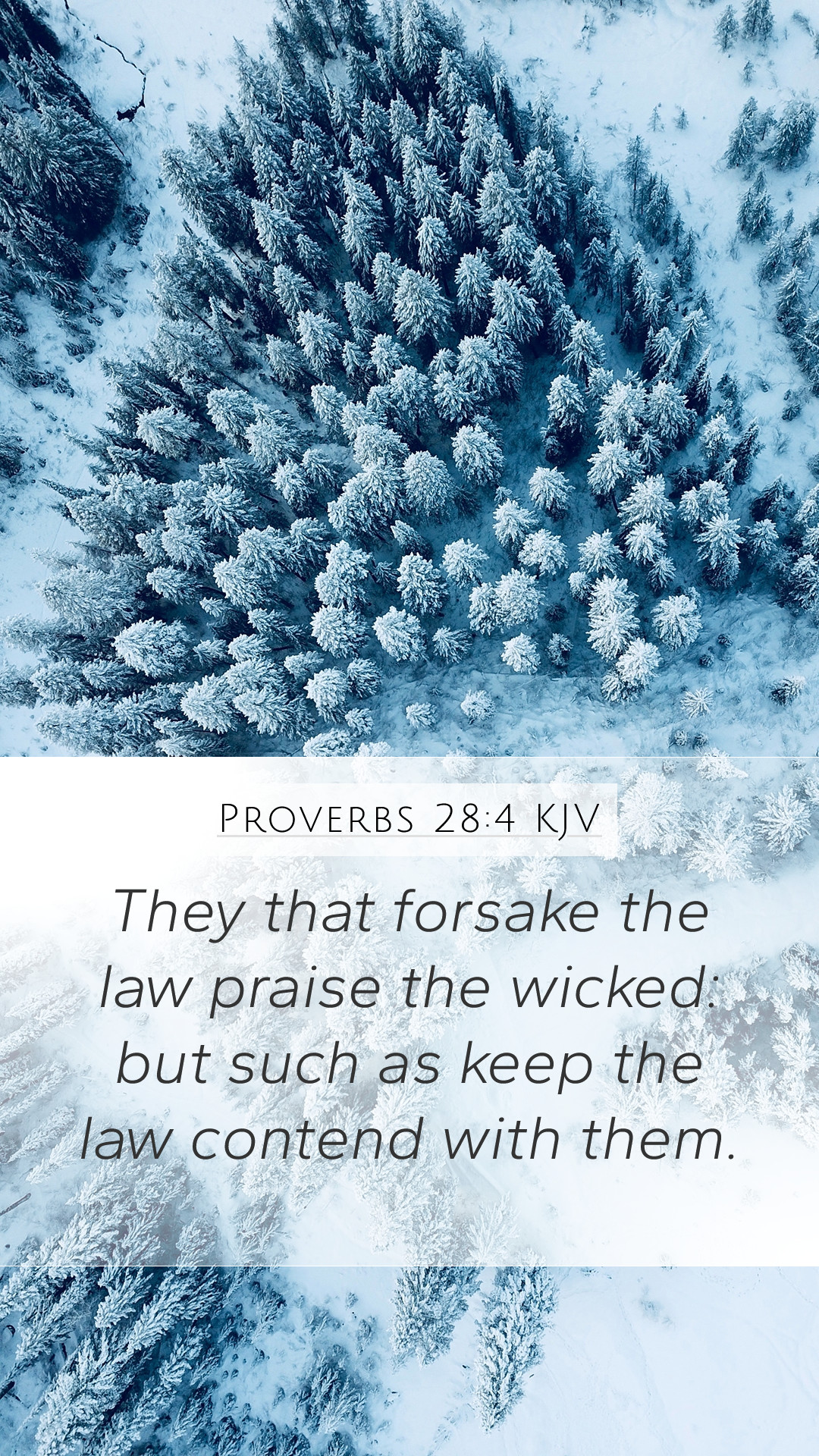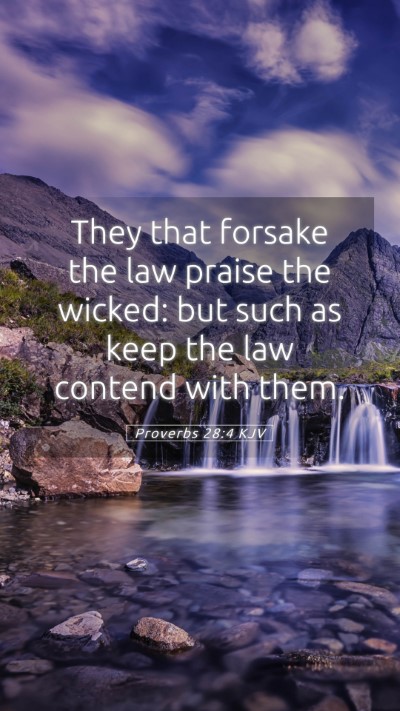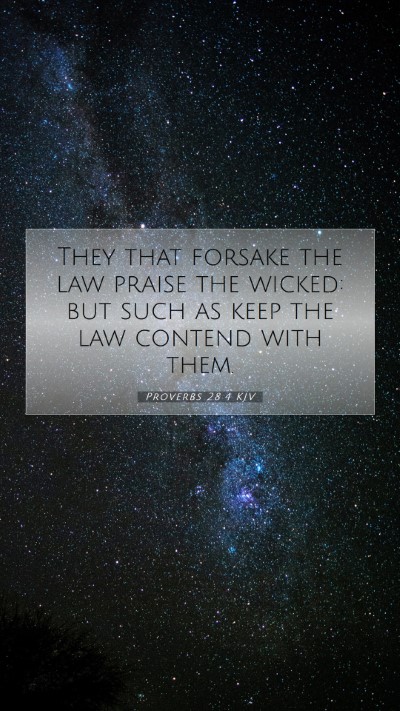Understanding Proverbs 28:4
Proverbs 28:4 states: "Those who forsake the law praise the wicked, but those who keep the law strive against them." This verse encapsulates a profound principle regarding the relationship between morality, law, and societal behavior. Below, we delve into the interpretations and meanings derived from renowned public domain commentaries, offering a comprehensive understanding of this scripture.
Bible Verse Meanings
The meaning of Proverbs 28:4 is multifaceted, reflecting on the consequences of adhering to or abandoning the law of God.
-
Matthew Henry's Commentary:
Henry emphasizes that abandoning God's law leads to a society that promotes wickedness. He draws attention to the idea that those who reject divine guidelines not only undermine their moral standing but also uplift immoral behaviors, resulting in the glorification of evil. The passage serves as a warning to the faithful not to succumb to such societal pressures but to uphold righteousness.
-
Albert Barnes' Notes:
Barnes interprets the verse as a dichotomy between the wicked and the righteous. He suggests that the wicked feel validated in their actions when the law is forsaken, creating a cycle of moral decay. Conversely, those who strive to keep the law are often in opposition to wickedness, acknowledging the challenge they face in a world that may not uphold the same values.
-
Adam Clarke's Commentary:
Clarke provides insights into the implications of this verse on community relationships. He notes that forsaking God’s law encourages a culture that celebrates wrongdoings. His analysis points to the necessity of maintaining personal integrity and the importance of supporting one another in living by divine principles, highlighting that a society based on righteousness fosters goodness and justice.
Biblical Exegesis
This verse invites deeper scripture analysis through its exploration of moral law versus societal trends. The act of forsaking the law corresponds to a lack of personal conviction and a willingness to distort truth for acceptance. Highlighting the tension between keeping the law and confronting wickedness illustrates the fundamental struggle that believers face.
Contextual Background
In the broader context of Proverbs, chapter 28 deals significantly with themes of righteousness, justice, and the contrasts between the behavior of the wicked and the righteous. An understanding of these themes reinforces the messages held within Proverbs 28:4, situating it among discussions on moral accountability and the societal impacts of moral choices.
Application of Proverbs 28:4
Understanding this verse is not merely an academic exercise but has practical implications for everyday life. Here are several applications:
- Upholding Morality: Reflecting on one's choices and the laws one upholds can guide personal conduct and strengthen community values.
- Resistance Against Societal Norms: It encourages believers to stand firm in their beliefs, even when those around them may not share the same moral compass.
- Encouraging Accountability: The passage serves as a prompt for individuals to hold themselves and each other accountable to a standard of goodness defined by God’s law.
Cross References
Proverbs 28:4 resonates with several other scripture passages that reinforce its themes:
- Proverbs 4:23: "Keep your heart with all vigilance, for from it flow the springs of life."
- Isaiah 5:20: "Woe to those who call evil good and good evil, who put darkness for light and light for darkness."
- Romans 12:9: "Let love be genuine. Abhor what is evil; hold fast to what is good."
Conclusion
Proverbs 28:4 serves as a stark reminder of the moral choices individuals are faced with in relation to God's law. The commentary insights from Henry, Barnes, and Clarke collectively underscore the vital necessity of adhering to righteousness amidst challenges posed by wickedness. Through deep study and understanding, believers can apply these principles to guide their lives, influence others positively, and navigate the complexities of a morally ambiguous world.


